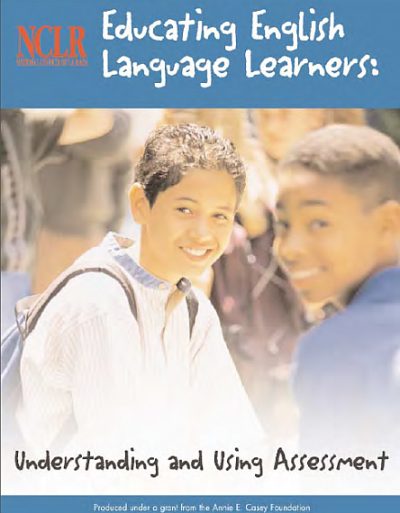Assessing Experience
Educators often do not have the experience to recognize the cultural and linguistic strengths and weaknesses of ELLs.

This guide, part of a series for charter schools, prepares schools to better assess the effectiveness of their English Language Learners (ELL) program. It is designed to assist educators in developing appropriate materials and accessing relevant resources. This guide was developed after a study showed that the quality of language support rests upon the experience of staff and the staff’s skill in using the most helpful resources.
Instruction and assessment tools for ELLs don't work well if based solely upon a middle-class European-American perspective. Assessment instruments need to be reviewed by those who know the cultures and languages represented in the classroom. Culturally-responsive instruction involves adapting the subject matter to be understood by the student. For example, a math question that assumes ELL students have knowledge about U.S. National Parks would not be considered culturally responsive.
We hope you'll find value in this report. We’d love to get a little information from you, which we'll use to notify you about relevant new resources.